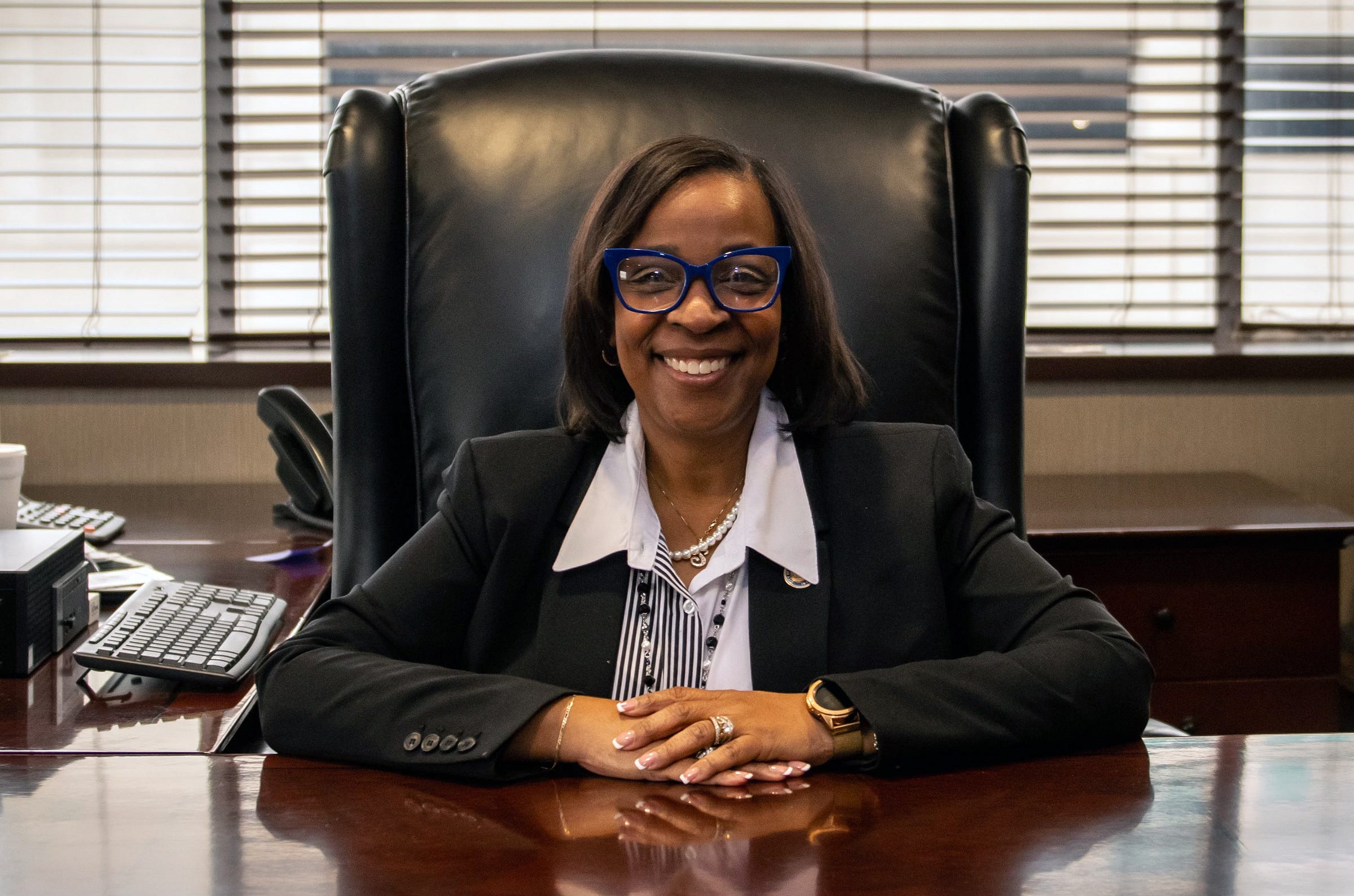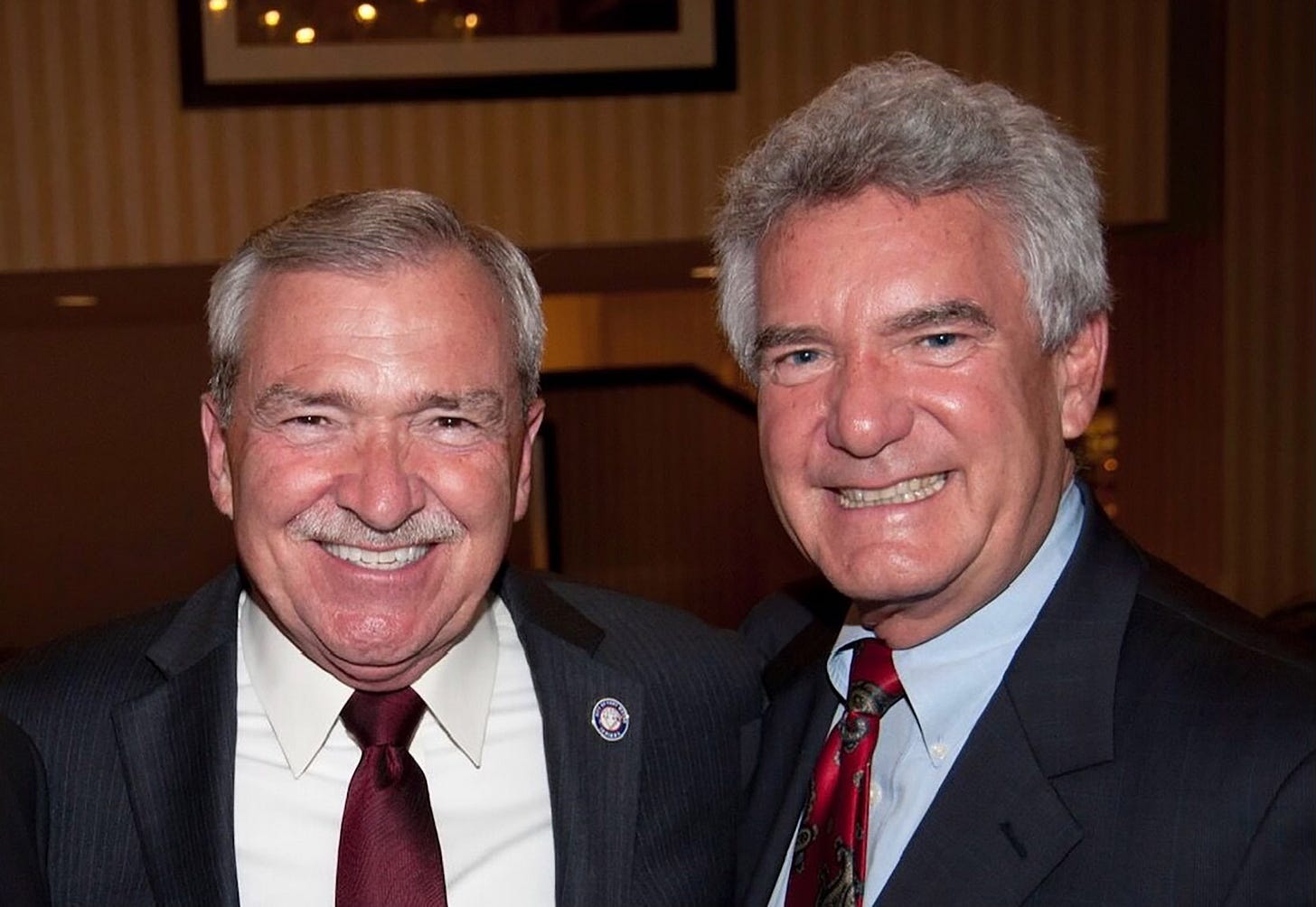What it’s really like to be mayor of Fort Wayne
Former mayors Graham Richard and Paul Helmke share the biggest surprises about the city’s top job

One week ago today, Sharon Tucker was sworn in as mayor of Fort Wayne.
On that day, she became the first Black female leader in the city’s history, filling the remaining 92% of the late Tom Henry’s four-year term.
“I think it’s significant,” said former mayor Paul Helmke about Tucker’s role as a trailblazer. “It sends a message to the community that they can be listened to and aren’t going to be shut off just because they don’t look like the typical folks that have always run things.”
Helmke, a Republican, served three terms in office, from 1987 to 1999. He was followed by Democrat Graham Richard, who beat Linda Buskirk — Helmke’s director of public works — by just 76 votes.
Richard went on to soundly defeat Buskirk in a 2003 rematch by a 58% to 42% margin. (Current U.S. Senate candidate Jim Banks was Buskirk’s campaign manager in that race.) Four years later, Richard elected not to run for a third term and Henry won the contest to succeed him.
Richard said the fact that Tucker is inheriting a very capable team that Henry assembled is a huge advantage most new mayors don’t possess, and one he wishes he’d had back in 1999.
Helmke noted that Tucker’s time on both Fort Wayne City Council and Allen County Council is also a huge asset for her in the job. “She really comes in with a lot more experience than I had in terms of elective service,” he told me. “It’s particularly rare to find someone that combines city and county experience.”
Both men, however, said there are certain things about being mayor of Fort Wayne that no one — even someone with Tucker’s lengthy resume — can fully appreciate until they’re actually in that role.
“It can eat you up,” Helmke warned.

Managing the managers
One of the biggest surprises to a new mayor is just how much of city government they are expected to oversee.
“It’s a huge organization [and] it does a lot of things,” said Helmke. “When you try to micromanage, things are going to get screwed up.”
Richard echoed those thoughts. “You’ve got to find ways to create systems to effectively delegate that so it doesn’t create bottlenecks for your being able to do the important work,” he said.
Helmke said keeping the job manageable required him to give members of his administration the freedom to meet their goals and objectives the way they wanted to, even if it conflicted with what Helmke would have done.
That also meant he had to hear criticism from residents that he often agreed with but chose not to address.
“I would tell people, ‘You know, if I were a police chief, I probably would do it differently. Or if I were a planning director, I probably would [do it differently]. But I can’t be mayor and police chief and planning director. I’ve got to give the people that are good people the authority to do these things.’”
However, it’s not enough to just give them that authority, Helmke said. He learned quickly the importance of asking them good questions.
“You want to make sure that [they] know what they’re talking about. If they’re faking it, you’ve got to spot that pretty quickly.”
Helmke said that asking questions effectively is the key to succeeding in the mayor’s main job, which is making decisions.
“When there’s a big controversy or a big expense or a big decision, you’re the one that makes the decision. Even though the people below you are the ones that developed it, you’ve got to ask the good questions and then you make the decision based on what feels right to you.”
Once that decision is made, Helmke said, expect some drama. It’s just part of the job.
“You learn pretty quickly, every decision you make — even the ones you don’t think are controversial — is going to make somebody angry.”
Just as important as making good decisions, he learned, was swiftly fixing the decisions that turned out to be bad.
“You want to make as many right decisions as you can, but if you make a wrong one, either in terms of personnel or in terms of policy, you’ve got to be able to correct it and correct it quickly.”
Staying connected
Helmke and Richard both said that another thing people don’t understand about being mayor is just how challenging it is to stay connected to what’s really happening in the community, including how your actions are being perceived.
“When you’re in office, you’re going to get a lot of people that are just going to say what they think you want to hear,” Helmke told me. “You need some honest truth-tellers that you can count on.”
That’s an area where Tucker’s friends and longtime supporters can be a big help, he said. “They’re still going to be your friends, they’re still going to like you, they're still going to support you, but [they will] tell you when you’ve gotten off track.”
Richard agreed. “There’s an assumption that, ‘Oh, she’s the mayor. She’s going to hear that. I don’t have to [reach out],’” but he said that’s not always the case.
“Continue [to communicate] with email or whatever is comfortable for her, to share ideas and what you’re hearing in the community.”

Balancing it all
Both men said they quickly discovered just how many people want a piece of the mayor’s time.
“If I said yes to everything, I would never have had to have a meal on my own,” Helmke told me. “There’s always a breakfast meeting, always a lunch meeting, always a dinner meeting that you’re invited to.”
Richard said he would get invitations to six or seven speaking engagements per night. “I’m sure there are even more now.”
Getting out and meeting people is a crucial part of the job, Helmke said, but he had to learn to make time for himself and his young family, too.
Richard made sure he was visible at community events but said he had more of an internal focus. Henry, on the other hand, “liked to do a lot of the external-facing [duties of the job].”
Like Helmke and Richard before her, Tucker will have to figure out how she wants to balance her work duties, public appearances, and her private life.
“It’s a very time-consuming job,” said Helmke. “You could work on it 24/7.” He made it a priority to never miss big events like his children’s school plays and ballet recitals, and tried to block out Saturdays and Sundays as much as possible.
Richard, a self-admitted workaholic, said he would often come into the office on weekends when it was quiet in an effort to catch up or get ahead.
Looking back, he acknowledges he didn’t do a good job of having a healthy work-life balance, but didn’t appear to have much regret about that.
“I loved the job,” he told me. “I loved the work.”



